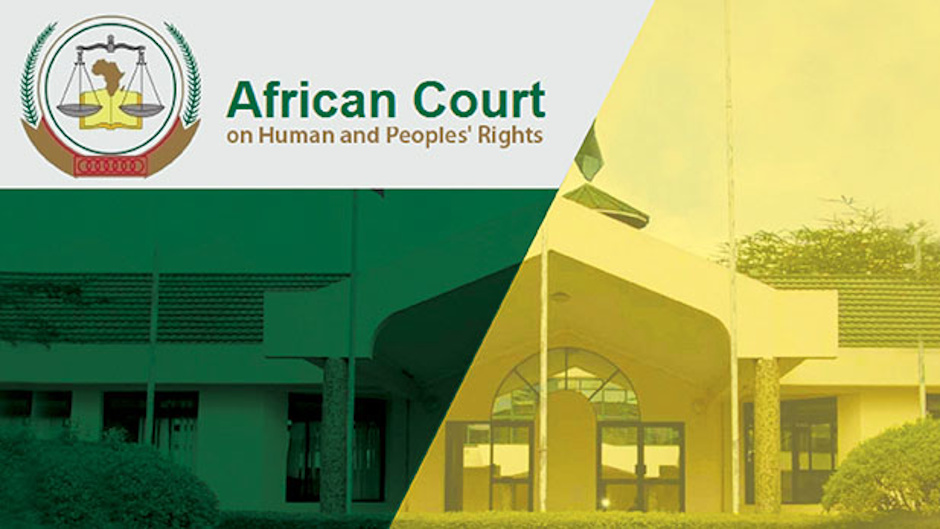Second-year law students Roman Rodriguez-Tejera, Maia Dombey, Rachel Fleishman, and Human Rights Clinic’s Associate Director Tamar Ezer had the opportunity last spring to file a submission with the African Court of Human and Peoples Rights on the gender impacts of vagrancy laws, in collaboration with Lawyers Alert-Nigeria. The submission complemented a request by the Pan African Lawyers Union for an advisory opinion from the African Court on the general compatibility of vagrancy laws with human rights standards.
Historical Roots of Vagrancy Laws
Rodriguez-Tejera, Dombey, and Fleishman provided a detailed analysis that traced the historical roots of vagrancy laws from their origins as tools of European colonialism, which codified the systematic subjugation of indigenous populations, to its modern-day application in independent African states as a means of controlling marginalized identities, including women and LGBTQ people who stray outside accepted gender norms.
“Vagrancy laws are part of the colonial legacy that is very much alive today and used to purge public spaces of unwanted groups,” said Ezer. “A tool of social control, they reinforce and maintain discriminatory hierarchies and narrow gender norms through repeated harassment and arrest. In many African countries, as well as other parts of the world, vague statutes criminalize loitering, ‘idleness,’ and being a ‘vagrant’ or ‘rogue and vagabond.’”
Laws Often Used as Pretext for Sexual Assault
The statutes provide law enforcement with a facially valid reason to question (cis and trans) women for simply existing in public. Most distressing is that these persistent stops are often a pretext for sexual assault. Indeed, several studies have found that cis women, trans women, and gay men experience sexual and physical assault, as well as rape after officers stop them on the unverified suspicion that they are engaged in sex work, Rodriguez-Tejera said.
As the team of students noted in their submission, these policing practices, and the laws that enable them, not only violate the fundamental human rights of people to equality, liberty, and security of person, and freedom of movement but also impair their ability to adequately provide for themselves. Women that either have long commutes on foot, to and from work or work late hours are particularly vulnerable to harassment.
Reinforcement of Misogynistic, Transphobic Worldview
“It’s crazy,” said Rodriguez-Tejera. “You have these laws that are effectively meant to reinforce this misogynistic and transphobic worldview that cis women should just stay in the home and that trans identity only exists for the purpose of attracting men. And when these people have the audacity to simply go outside, they get arrested, not because police think they’ll stay in jail, but because they want to send a message that they do not have a place in their own communities.”
Indeed, most of the arrestees are held for a relatively short period of time – estimates vary from between 24 and 72 hours, although there are some outliers of several months – after which they are released without any record that they were even detained.
However, these repeated “short-term” detainments fundamentally impair the ability of affected persons from being able to hold employment or care for their children. Furthermore, while in detainment facilities, which are not actual jails and thus not equipped to meet adequate housing requirements, women are kept in egregiously unsanitary conditions that violate their right to dignity, according to the students.
African Court on Human and Peoples’ Rights
As the African Court on Human and Peoples’ Rights considers compliance with human rights of vagrancy laws, the students felt satisfied in highlighting the experiences of countless women who endure daily rights violations.
“It’s just gratifying to know that the African Court will hear about this,” said Dombey, “I don’t know if it will determine their judgment but at least they won’t be able to keep looking away.”
On September 20-21, the Human Rights Clinic, in collaboration with partners, will be hosting a global Symposium on Petty Offenses, focused on “Challenging Criminalization of Poverty, Marginalization, and Gender Non-Conformity.” The symposium, which is free and open to the public, will provide an opportunity for scholarly reflection and the sharing of experiences and strategies, drawing on the work of advocates from Ghana, Guinea, Guyana, Hungary, India, Israel, Jamaica, Kenya, Madagascar, Malawi, Nigeria, Sierra Leone, Uganda, and the United States.
More on the Human Rights Clinic

